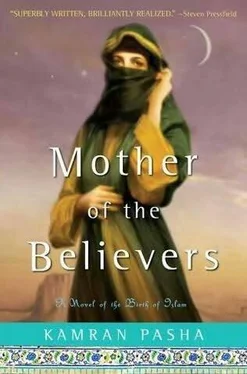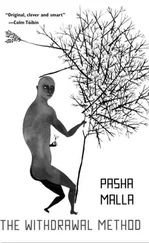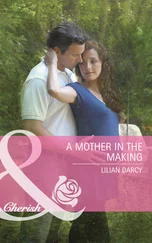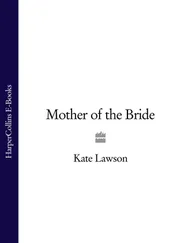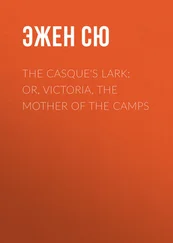But Abu Sufyan was not about to let this happen. He stepped right in front of my father and looked down at him with fury.
“Do not pester these pilgrims any further, Abu Bakr,” he said through gritted teeth. “They are tired and thirsty. Let them drink the sacred water of Zamzam in peace.”
Abu Bakr looked at the Bedouin, quenching their thirst from the well.
“I will do as you say. If you can tell me why this well is so sacred.”
Abu Sufyan stiffened.
“It is sacred because our forefathers have said so. That is enough for me.”
My father turned to the Bedouin.
“Tell me, my brother, is that enough for you?” he asked softly. “Do you know why the water you drink is blessed?”
The Bedouin looked perplexed. He ran a hand over the scar that disfigured his left cheek.
“I have never asked. But now I am curious.”
The Bedouin glanced at Abu Sufyan, but the tribal chief had no response.
And then my father turned to me.
“Tell them, little one,” he said with a gentle smile.
I looked up at the dark and dusty men from the desert and recited the story I had been raised with.
“The well of Zamzam is a miracle from God, written in the Book of the Jews and Christians,” I told them. “When our father Ishmael was sent into the desert by Abraham, his mother, Hagar, looked for water so that her child would not die of thirst. Seven times she ran between those hills.”
I pointed to the peaks of Safa and Marwa that overlooked the city. Even then, dozens of pilgrims were racing between the hills as part of the Pilgrimage ritual, though they had long forgotten its meaning or origins.
“But when she could find no water, she came back here,” I continued. “And the angel Gabriel appeared and told Ishmael to strike his foot. And the well of Zamzam sprang from beneath his feet, bringing water to the desert. And life to Mecca.”
As I spoke, I could tell that I had caught the attention of the Bedouin. They listened raptly to the story I wove, which suddenly brought a new meaning to the ancient rites they had crossed the desert to perform.
Abu Sufyan snorted.
“A child’s fable. Come, let me take you to the House of God.”
The Bedouin looked at me and my father, intrigued.
“Perhaps it is a child’s tale, but it is a good one,” he said, his eyes wide with wonder.
Abu Sufyan could no longer hide his irritation. He pushed his Bedouin guests toward the Kaaba as if they were wayward mares. My father and I followed. Even though we had completed our rites for the morning, Abu Bakr had sensed that the Bedouin were ready to hear more about our faith. We would wait until the men had finished their circumambulation and Abu Sufyan attended to other newcomers. And then my father would likely take them back to the House of the Messenger, where they could hear the Truth and be saved.
But as we approached the Kaaba, where the perpetual whirlwind of pilgrims was in motion, I heard shouts from across the Sanctuary. The enraged, booming voice of a man echoed through the plaza and drowned out even the loudest of prayers.
“What is it?” I asked my father, more intrigued than frightened.
“It is Umar. As usual.”
Ah, of course. Umar ibn al-Khattab, one of the most virulent of the lords of Mecca in his opposition to God’s Messenger. I saw him across the open space, towering like a giant over a small African man I immediately recognized as a former slave named Bilal. My father had bought Bilal’s freedom from his ruthless master, Umayya, who had tortured the poor man after he had embraced Islam. Umayya had dragged his rebellious slave into the marketplace, tied him to the ground under the blazing Meccan sun, and placed a heavy boulder on Bilal’s chest until it cracked his ribs and made it almost impossible to breathe. Umayya demanded that Bilal return to the worship of his master’s gods, but all the courageous slave would croak out under torture was “One God…One God…” Bilal would have died there that day had my father not intervened and paid Umayya’s outrageous price of ten gold dirhams for his freedom.
And now Umar tormented the poor freedman, who lay prostrate on the earth before the House of God, a gesture that immediately identified him as a follower of Muhammad’s new religion.
“You son of a dog! Get up!” Umar’s voice was like an elephant’s cry, terrifying and unearthly at once. He was the tallest man I had ever seen, with a bushy black beard that grew down to his waist. His arms were as thick as tree trunks, the muscles bulging clearly from the thin fabric of his red tunic. Umar reached down with hands that were larger than my head and grabbed Bilal by the scruff of his threadbare white robes. Bilal did not struggle but looked into Umar’s eyes with a serenity that only seemed to enrage the monster more.
Umar slapped Bilal hard, and I saw a flash of white as one of the African’s teeth flew out of his mouth. Alarmed, my father ran over to his side.
“Umar, leave Bilal in peace. Do not profane the Sanctuary with your wrath.”
The son of al-Khattab stared at my father, who barely came up to his chest, with contempt.
“It is you who profane the Sanctuary with your lies, Abu Bakr!” his voice thundered. “You spread discontent and rebellion, turning slaves against their masters!”
My father remained calm, refusing to let Umar get a rise out of him.
“Bilal is no longer a slave to any man,” he said firmly.
Umar spat in contempt.
“Just because you bought his freedom does not make him any less a slave.”
Bilal looked at his tormentor with a steady gaze. When he spoke, it was with a deeply melodious, musical voice. A voice for which he would be renowned in years to come.
“You are right, Umar. I am still a slave. A slave to Allah.”
Umar’s face reddened until it became the color of an angry sunset.
“You dare speak to me about Allah before His very House!”
Umar kicked Bilal hard in the gut, knocking the small man to the ground. The tiny African cried out in pain, grasping his stomach and writhing in pain. Umar pushed my father out of the way when he leaned over to help Bilal and then kicked him again.
Furious, I ran over to Umar and kicked him in the shin.
“Stop it! Stop hurting him!”
By then, a crowd of pilgrims and locals had formed around us, watching the ongoing drama. When I lashed out at Umar, many laughed at the madness of a child taking on one of the most feared men in Arabia.
Hearing their jeers, Umar looked up and saw the men for the first time. Alarmed at the sudden public spectacle his temper had created during the sacred Pilgrimage, Umar attempted to reassert his dignity and power over the bemused crowd.
“Step back! I am a guardian of the Holy Kaaba!”
But I wouldn’t let him get away with that.
“No! You’re just a bully!” I threw my tiny arms around his legs to prevent him from kicking Bilal again, causing a greater eruption of laughter from the spectators. I looked up to see that while some were mocking, others, especially pilgrims who were foreigners to the city, were shaking their heads in disgust at the violent display before the House of God.
And then I saw Talha, my favorite cousin, push his way through the crowd. My face lit up. Of all my relatives, he was the one I was closest to. There was a natural sweetness to him, like the honey from a bee’s comb. And he was so handsome, with his flowing brown hair and expressive gray eyes that always showed what he was feeling. And in them now I saw terrible anger.
Talha stormed up to Umar, unafraid of the towering blowhard.
“How brave of you, Umar. Fighting a man half your size, and then a little girl. Shall I bring you a cat to test your prowess next?”
Читать дальше
